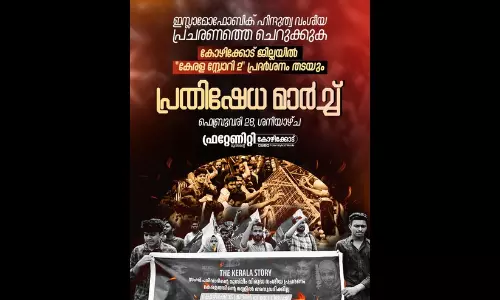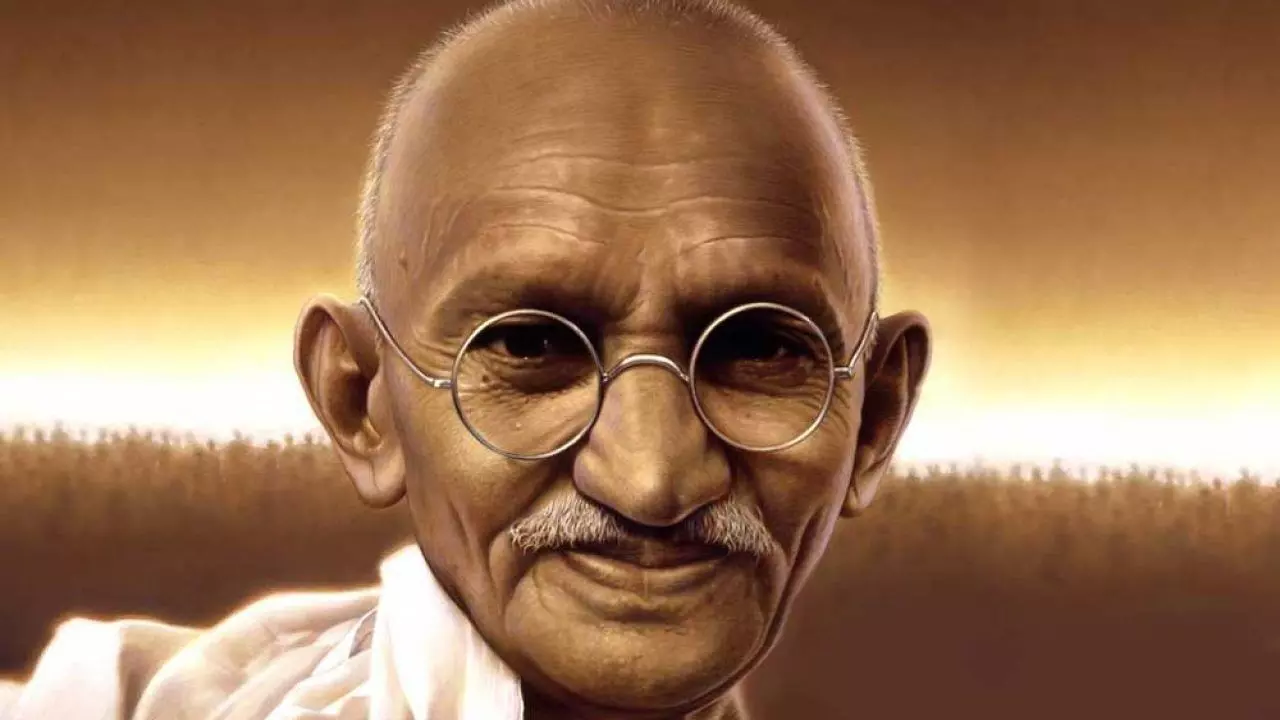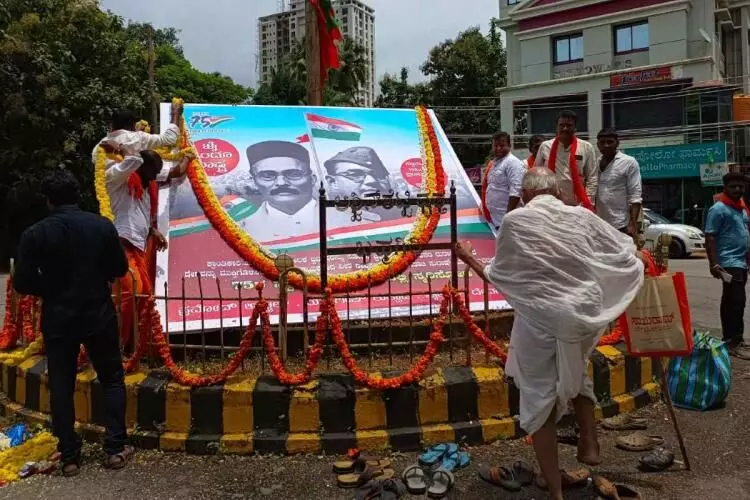
The path of Gandhiji or his assassins?
text_fieldsThe three bullets fired by Nathuram Godse at Gandhiji seven and a half decades ago this day have multiplied many times and now look aiming for the very nation. The waves they created place a choice before a civilized and refined nation as much now as they did then: between the path of peace, virtue and progress and the path of violence, hatred and destruction. Gandhiji's ideal was simple: the country means all the people in it; it belongs to everyone; diversity is strength. The basis of national progress consists not in division imposed by a unitary culture, but in unity achieved by embracing diversity. The nation understood his warnings about the dangers of racism and communal hatred and warnings about the evil of casteism given by Ambedkar. Morality based on universal humanity became the hallmark of independent India. India has realized that nationalism is not about territorial boundaries but about knitting together of cultural diversity. After overcoming the scars of the great tragedy of partition, the country started to leap forward in the fields of science, education and society. It began to grow into a great economic power. Gandhi's India was hailed as the messenger of peace at international forums. The blood spilled by Gandhiji gave only strength to the nation's unity and determination.
But the hands behind those three bullets and the philosophy that moved them continued to sow the seeds of hatred in minds. Those who did not participate in the freedom struggle and supported the British rule started trying to grab ownership of independent India. If Gandhi's goal was people's welfare, those who killed him aimed for power. The forces of division were busily at work during both Congress and non-Congress rule. In Gandhi's land, where he held a satyagraha for the sake of religious amity, there started threats to freedom of worship. In the land of the man who walked the streets with a message of love, what came to be heard later was the rumble of the chariot of hatred. As the country slowly forgot the sage of non-violence, mobs went on a killing spree; authorities gave tacit consent. The land of the great soul, who sacrificed his life to reinforce mutual trust, became a battleground of alienation. And for that, the assassins of Gandhi started being venerated.
Those who had no place in the national movement for freedom began to remove Gandhi and replace him with his assassins. Mentioning the name of Godse was banned during remembrance of Gandhi. Further criminals who got elected to people's assemblies conferred on Godse the title of patriot. It went to such an extent that in Rajasthan, the BJP government named a bridge after Godse. In Maharashtra, the Congress government named a prominent road after Savarkar. A statue of Savarkar was placed near the university founded by Gandhiji in Gujarat. Even in places like the Parliament, Gandhi's killers are being conferred respectability. The film 'Gandhi, Godse- Ek Yudh', which sees Gandhiji and Godse as equals, was released the other day. In Maharashtra, the Deputy Chief Minister's wife said this much to lower Gandhi's status: when she said "India has two fathers of the nation: one is Gandhi, the other is Modi". Parallel to Gandhi getting pushed to the margins, the common man, the poor, the Dalits and the minorities were neglected. The ruling party, which prides itself that there is not a single Muslim MP, is the opposite of the politics of inclusiveness advocated by Gandhi. The time has come for everyone to think which side of the bullets fired at Gandhi 75 years ago they are.
What Godse aimed at was not Gandhi the man but his ideal. Today, even as Gandhi is being held high, efforts are being made to hide his ideals. In 2019, Prime Minister Modi had written an article in the New York Times on Gandhiji's 150th birth anniversary. His silence on the dimension of Gandhi's laying down his life for religious harmony, was particularly noticed. Today, when the country remembers that martyrdom, we must recognise that the good in people has not entirely dried up. It is true that people who spew malice do exploit people's ignorance. And ignorant people are getting trapped in hate politics. But the politics of unity exemplified by Gandhi can still win. For that, it is only necessary to understand the two opposing politics as distinct. No one can belong to the Gandhian path by merely wearing his cap or by remembering his name just for the sake of it. They should strive for ideals like equality, freedom, fraternity, unity and simplicity that he stood for. They should be aware of the politics of hate and speak out against it. The 'pure' simpletons who remain silent when the bullets of hatred are fired, are unknowingly helping Godse. It should be remembered that the majority of Hindus followed not Savarkar and Godse who turned their backs on the freedom struggle, but the HIndu Gandhiji. India would not have gained independence if Hindus had embraced Hindutva then. What is apt for regaining the the freedom and peace that we are losing is the path of Gandhiji.


























